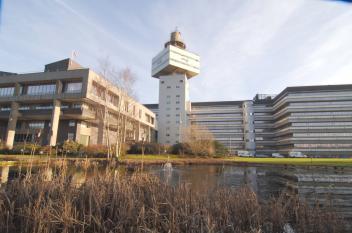BT has joined forces with high-tech Cambridge spin-out Nu-Quantum, other UK start-ups, Research and Technology Organisations (RTOs) and university partners, as part of a world-first trial of end-to-end quantum-secured communications for 5G and connected cars.
The AIRQKD trial combines BT’s globally leading expertise in building quantum-secure networks using QKD (Quantum Key Distribution – an essentially un-hackable, cutting edge technique for sharing encryption ‘keys’ between locations using a stream of single photons) with other new techniques for applying quantum security to mobile devices, developed by UK start-ups Nu Quantum, Angoka and Duality.
The trial, which will run for 36 months, is funded with £7.7M by the Quantum Technologies Challenge, led by UK Research and Innovation. It will for the first time combine Quantum Key Distribution over fixed fibre and free-space networks (point-to-point laser connections between cell sites), with quantum-enhanced security chips in mobile devices.
In combination, these technologies will be used to deliver an ultra-secure link between connected 5G towers and mobile devices, as well as to connected cars, in conjunction with the Warwick Manufacturing Group at Warwick University.
The new trial builds upon BT’s current fibre-based testbed for QKD, which runs between Cambridge and the BT Labs at Adastral Park, Suffolk. It will pave the way for the development of a wide range of quantum-secured use-cases, for applications where ultra-security of data transfer is especially important.
Cambridge-based Nu Quantum, one of the UK’s newest quantum technology start-ups, will be the provider of quantum components: small modules capable of manipulating the faintest light signals (single photons of light) to generate and communicate absolutely secure quantum encryption keys.
Other partners include Belfast-based Angoka, Bristol’s Duality Quantum Photonics and London-based Arqit; all cutting-edge start-ups specialising in the new field of Quantum tech, in which the UK is increasingly seen as taking an early lead.
Professor Andrew Lord, BT’s head of optical network research, said: “The UK has firmly established itself as a global leader in quantum-based network security. With the AIRQKD trial, we’re delighted to be taking this to the next level and combining multiple quantum technologies from innovative UK start-ups to build the world’s most secure fixed-mobile communications link. Connected cars are only one of the possible range of applications that will benefit from such ultra-secure connectivity in the future.”
Dr Carmen Palacios Berraquero, co-founder and CEO of Nu Quantum said: “In this project, we are basically creating the architecture for a whole new quantum-telecommunication industry, with a supply chain running from component manufacture through to end user. At Nu Quantum we have the unique ability to use the smallest packets of light, making the most of quantum mechanics and the security advantage it can give us. This 3-year partnership with BT and others across the UK is an important step taking quantum out of the lab and into our networks.”
Roger McKinlay, Challenge Director for the UK Quantum Technologies Challenge, said: “This investment is part of a wider package delivered by The National Quantum Technologies Programme, which is set to make a £1 billion investment over its life-time. This is ground-breaking technology but also commercially important, the close collaboration between the parties accelerating the establishment of a UK supply chain.”
AIRQKD is an Innovate UK funded project involving the following partners: BT, Lexden Technologies, OLC, Duality, Bristol University, Fraunhofer Centre for Applied Photonics, Strathclyde University, Warwick University Manufacturing Group, Bay Photonics, Heriot Watt University, Angoka, ArQit, Nu Quantum, National Physical Laboratory, CSA Catapult, Edinburgh University.

